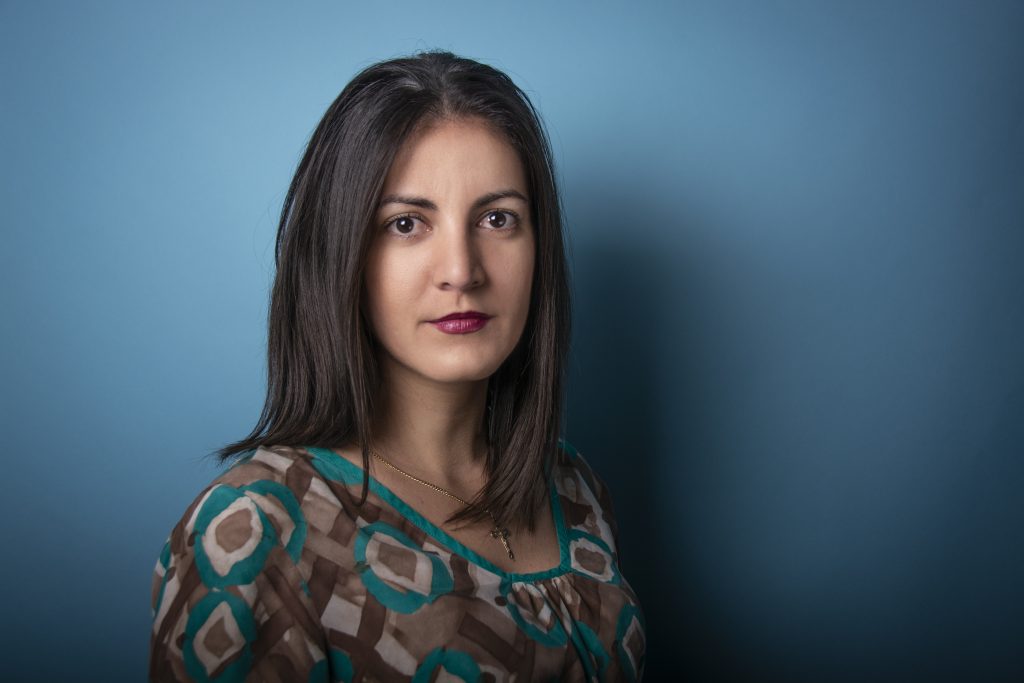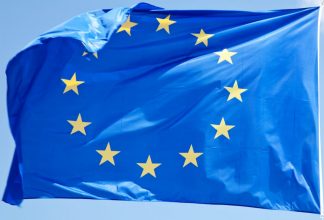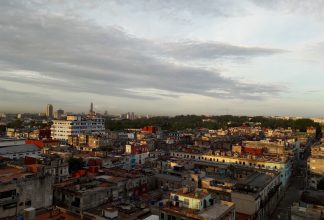EU-Cuba Agreement: The Road to Democracy is Now

Letter #4 by Rosa María Payá and Cuba Decide.
In July 2019, Civil Rights Defenders invited Cuban human rights defenders and civil society organisations to contribute with texts on how the European Union should work towards Cuba. A report with all of the proposals will be presented during a seminar in the European Parliament on 4 February. Until then, you can read some of the texts here in Spanish, and here in English.
This letter is written by Rosa María Payá and Cuba Decide:
EU-Cuba Agreement: The Road to Democracy is Now
The EU signed the Political Dialogue and Cooperation Agreement (PDCA) with the Cuban government in December 2016. The European Parliament approved this agreement in July 2017, and now many of the member states have ratified the agreement without criticising the Cuban totalitarian political system or the government’s repressive practices.
However, in November 2018, the European Parliament approved a resolution condemning the human rights violations perpetrated by the Cuban government asking, calling on VP/HR Federica Mogherini to:
Recognise the existence of a political opposition to the Cuban Government and to support its inclusion in the political dialogue between the EU and Cuba; reminds the European institutions that civil society and those awarded the Sakharov Prize are key actors for the democratisation of Cuba and that their voice must be heard and taken into account within the framework of bilateral relations; in this sense, calls on all EU Member State representatives to raise human rights concerns during visits with the Cuban authorities and to meet with the Sakharov Prize laureates when visiting Cuba in order to ensure the internal and external coherence of EU human rights policy.
Before and after approving this resolution, VP/HR Federica Mogherini and the negotiators designated by her, failed to acknowledge and to include the opposition and members of Cuban civil society who are outside the Cuban government’s control within the framework of the political dialogue. On an even more serious note, Ms. Mogherini’s visits and her statements about Cuba have been used by the dictatorship to gloss over the absence of civil, political, economic, and cultural rights in the country.
This concession to the Cuban government is patently revealed in the EEAS’s 2016 Annual Human Rights and Democracy in the World report, which describes the island’s government regime with the following absurdity: “Cuba is a one-party democracy, with elections that are held at the municipal, provincial, and national level.” That statement was repeated publicly by Ms. Mogherini during one of her visits to the island.
The EEAS’s position, together with the fact that the European governments abandoned their earlier position of condemning human rights violations, of requiring democratic reforms in Cuba, and of keeping their embassies on the island open to the opposition and independent civil society as the EU’s Common Position on Cuba did in 1996, is being used by the Cuban government to attempt to legitimise its actions.
These serious actions include:
- The illegitimate transition of Mr. Díaz-Canel as head of State in April 2018, through the execution of a process where conditions impeding the people’s political participation persisted. The selection and election of the delegates to the National Assembly and the Provincial Assemblies did not meet the minimal requirements needed for free, just, and transparent elections; and it was established that General Raúl Castro would lead “decisions of the greatest transcendence for the present and future of the nation.”
- A fraudulent constitutional referendum in February 2019, which did not meet the international guarantees and standards needed for a free, just, and transparent process, and which was marked by government violence against those citizens who campaigned against the approval of the new constitution.
- The imposition of a constitution suffering from a lack of sufficient national consultation, ensuring that the Communist Party will preserve its power in perpetuity, reinforcing the concept of centralised state property and a controlled economy, where the one-party political system is declared to be “irrevocable” in Article 4, and in which Article 229 states that current and future generations are prohibited from altering the irreversibility of socialism, as well as the current political and social system.
- The imposition of a new Electoral Law designed to prevent the sovereign will of Cuban people, and to impede their right to participate in elections. The Cuban governmental authorities, including the electoral ones, continue to act in a coercive and arbitrary manner, systematically violating the civil and political rights of the Cuban people, especially in terms of the pro-democracy pacific efforts by the members of an independent civil society and the country’s political prisoners.
- Police violence and political persecution against civil society and citizens, exemplified in the dozens of raids undertaken by members of the military bearing long weapons against the homes of members of UNPACU and of Cuba Decide promoters; and the police violence against the Damas de Blanco demonstrations, members of the opposition, and LGTBI activists.
- The forced exile of several activists who were arbitrarily obligated by agents of the state to leave the country under death threats, such as the case involving the violent expulsion to Guyana of Eliecer Góngora, a member of UNPACU and a Cuba Decide promoter.
- Thousands of arbitrary arrests and thousands of convictions due to the person’s “pre-criminal social dangerousness”, together with the imprisonment of civil activists, people of faith, journalists, and human rights advocates, which has increased the number of political and conscience prisoners to 130, as documented through July 2019.
- The Cuban regime’s interference in the internal matters of several Latin American countries, as evidenced by the presence of Cuban intelligence personnel in Venezuelan military units and the Cuban spy discovered while conducting illegal monitoring at the military air base of Paloquemao, Colombia.
From December 2016 to now, none of the aforementioned events were even addressed in the discussions between the EU and Cuba, while living conditions and the human rights situation in Cuba have worsened in various aspects.
It is for the Commission and its foreign policy branch, the EEAS, to state what reforms must be implemented in Cuba so that the Cuban government respects the principles of human rights and democracy as established in the PDCA. The main problem with the agreement is that it does not specify that democracy and respect for human rights are objectives to be achieved through cooperation and political dialogue and, instead, only describes these as principles on which the agreement is based. This is a major step backwards in Europe’s foreign policy toward the island, which hinders any assessment of the results of the agreement, and, up until now, the parties involved have avoided explaining what will change during the coming years. This makes it impossible to determine whether the Cuban government is complying with the agreement or not. Consequently, it is urgent that the conditions for the immediate implementation of this agreement are established or, otherwise, its implementation should be suspended.
The member states can highlight this problem through the ratification process and request the EU to clarify what changes are expected to be achieved. This is now an imperative, given that repression at the hands of the Cuban government, a government that was not elected by its citizens, has increased; and that the Cuban intelligence machine’s participation in the collapse of Venezuela’s democracy is well-documented and has been decried by the Secretary General of the Organisation of American States (OAS).
In view of all the foregoing, it is crucial that the newly elected European Parliament, the new Commission of the European Union, the new High Representative for Foreign Affairs, and the member states of the European Union do not proceed with the implementation of the agreement unless:
1. The concrete reforms requested by the EU within the dialogue with the Cuban government regarding human rights are clarified and that the progress of the same is assessed. At a minimum, the reforms should include the following:
- The release of all political prisoners, and the end of the harassments and persecution by the State’s Security Forces against Cuban human rights advocates, and against independent civil society.
- The acknowledgement of the Cuban people’s right to change their country’s political system by exercising their right to vote, as well as the right to “determine their own political, economic, social, and cultural system,” as established in the Vienna Convention, adopted by the Cuban government and the Member States of the European Union in 1993.
- The celebration of a binding referendum on the island with regard to changing the political system, in order to allow the Cuban people’s participation in free, just, and multi-party elections.
- The necessary legal reforms to guarantee freedom of the press, freedom of association, and freedom to demonstrate.
- Ratification of the ICCPR and the ICESCR.
2. It is publicly acknowledged that the current National Assembly and all elected offices within Cuba’s executive branch are being exercised illegitimately because the electoral processes did not comply with the minimal requirements, and, therefore, the Cuban government should submit to the will of the people and initiate political reforms to guarantee free, just, and plural elections.
3. It is clarified that the EU’s contribution to the political dialogue and cooperation with the Cuban government must be specific in the establishment and implementation of laws and reforms. If the Cuban government does not initiate the reforms in six months, the EU must terminate the PDCA since the Cuban government would not be in compliance with the basic principles of democracy and human rights as established in the agreement.
4. Steps are taken to achieve the following: cooperate with the press and independent Cuban civil society like in any other country, meaning that members of civil society are invited to formal discussions about implementing the agreement; contribute to the funding of civil society organisations; invite independent journalists to press conferences; and publicly denounce politically motivated human rights violations. The EEAS must also clarify that no financial contributions will be made to official Cuban organisations or state agencies without the Cuban government’s public support for the aforementioned reforms, which are necessary in order to achieve democratisation.
Rosa María Payá and promoters of Cuba Decide
About Cuba Decide:
Cuba Decide is a citizen platform created to shift the Cuban system towards democracy. Cuba Decide aims to mobilise the Cuban people and the international community to challenge the regime’s succession plan and to give back the sovereignty of the State to the Cuban citizens. Cuba Decide promotes the celebration of an independent and internationally monitored binding referendum to invalidate the illegitimate Constitution and start the transition to a democracy.

